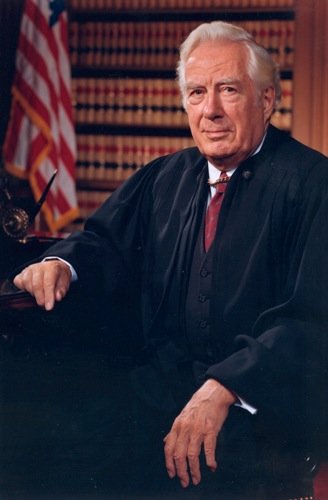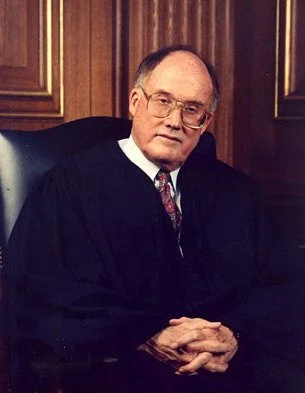Piper Aircraft Co. v. Reyno
Key Principles
Forum non conveniens: Dismissal of a case may be appropriate if holding a trial in the plaintiff’s chosen forum would impose a heavy burden on the defendant or the court, and the plaintiff cannot provide specific reasons of convenience to support their choice.
Change of Law: the possibility of an unfavorable change in the applicable law should not be given conclusive or substantial weight in the forum non conveniens analysis.
Foreign Rule: a plaintiff’s choice of forum is entitled to less deference if they are foreign to the jurisdiction in which they file the case.
Case Overview
CITATION
ARGUED ON
DECIDED ON
DECIDED BY
454 U.S. 235
Oct. 14, 1981
Dec. 8, 1981
Legal Issue
Can a motion to dismiss on the ground of forum non conveniens can be defeated by showing that the substantive law of the alternative forum is less favorable to the plaintiffs?
Holding
No, merely showing that the relevant laws of an alternative forum are less favorable than that of the chosen forum is insufficient to defeat a motion to dismiss since the central focus of forum non conveniens is convenience.
A 1960 Piper Aztec airplane, the same type involved in the accident that gave rise to this case | Credit: Wikipedia — FlugKerl2
Background
In 1976, a small commercial airplane crashed in Scotland during a charter flight, killing the pilot and all five passengers. All of the deceased, as well as the representative’s of their estates, were Scottish citizens and residents. The accident was investigated by the British Department of Trade, and a preliminary report suggested that mechanical failures related to the plane’s propeller may have been responsible for the crash. The plane was manufactured in Pennsylvania by Piper Aircraft Co., and the propellers were manufactured in Ohio by Hartzell Propeller, Inc. At the time of the crash, the aircraft was registered in Great Britain. It was owned, maintained, and operated by two companies organized in the United Kingdom.
In July 1977, a California probate court appointed Gaynell Reyno, a legal secretary to the attorney who filed the lawsuit, as administrator of the five passengers’ estates. Reyno filed five separate wrongful-death actions against Piper and Hartzell in the Superior Court of California claiming negligence and strict liability. Reyno admitted that she she chose a venue in the United States because its laws regarding liability, capacity to sue, and damages are far more favorable than Scotland’s, which does not recognize strict liability in tort and only allows relatives to sue for “loss of support and society.”
Piper and Hartzell, first removed to U.S. District Court for the Central District of California under diversity jurisdiction. Then, Piper requested the case be transferred to the Middle District of Pennsylvania since they engaged in business there, citing convenience under 28 U.S.C. §1404(a). Hartzell moved to dismiss for lack of personal jurisdiction, or in the alternative to transfer the case to the Middle District of Pennsylvania where their business with Piper could support jurisdiction. The Central District of California granted the request to transfer, and the defendants then requested dismissal on grounds of forum non conveniens. The Middle District of Pennsylvania dismissed the case, but the Third Circuit Court of Appeals reversed, holding that dismissal for forum non conveniens is never appropriate in cases where the law of the alternative forum is less favorable to the plaintiff. SCOTUS then granted certiorari.
Summary
5 - 2 decision for Piper Aircraft Co.
Piper Aircraft Co.
Reyno
White
Brennan
Burger
Powell*
Stevens
Marshall
O’Connor*
Blackmun
Rehnquist
* Justices Powell and O’Connor took no part in the consideration or decision of this case.
Opinion of the Court
Writing for the Court, Justice Thurgood Marshall held that plaintiffs can’t defeat a motion to dismiss on the ground of forum non conveniens merely by showing that the relevant laws of the alternative forum are less favorable than that of the chosen forum. Justice Marshall explained that the possibility of an unfavorable change in law shouldn’t be given conclusive or even substantial weight when applying the principle of forum non conveniens. Instead, the central focus of forum non conveniens is convenience, which is to be evaluated in a two-part balancing test. The first factor of this test is private interest factors that affect the parties’ convenience and make the trial easy, expeditious, and inexpensive. The second factor is public interest factors that affect the forum’s convenience such as court congestion, local interest in local controversies, the forum’s familiarity with the applicable law, and fairness to citizens. Justice Marshall stated that while a plaintiff’s choice of forum deserves substantial deference, this applies with less force when the plaintiff or real parties in interest are foreign, rather than residents of the chosen forum, and dismissal is ultimately left to the trial court’s discretion and may be reversed only upon a clear abuse of discretion.
In this case, Justice Marshall found that Reyno’s reliance on more favorable laws couldn’t defeat dismissal under forum non conveniens. He explained that if unfavorable law could automatically prevent dismissal of a case, the doctrine would become “virtually useless”, since plaintiffs would always select forums with the most favorable laws, and courts would be forced into complex comparative law analyses that the doctrine was designed to avoid. Specifically for foreign plaintiffs, Justice Marshall explained that American courts would become even more attractive to foreign plaintiffs, flooding already-crowded American dockets with litigation that has little to do with the U.S.









